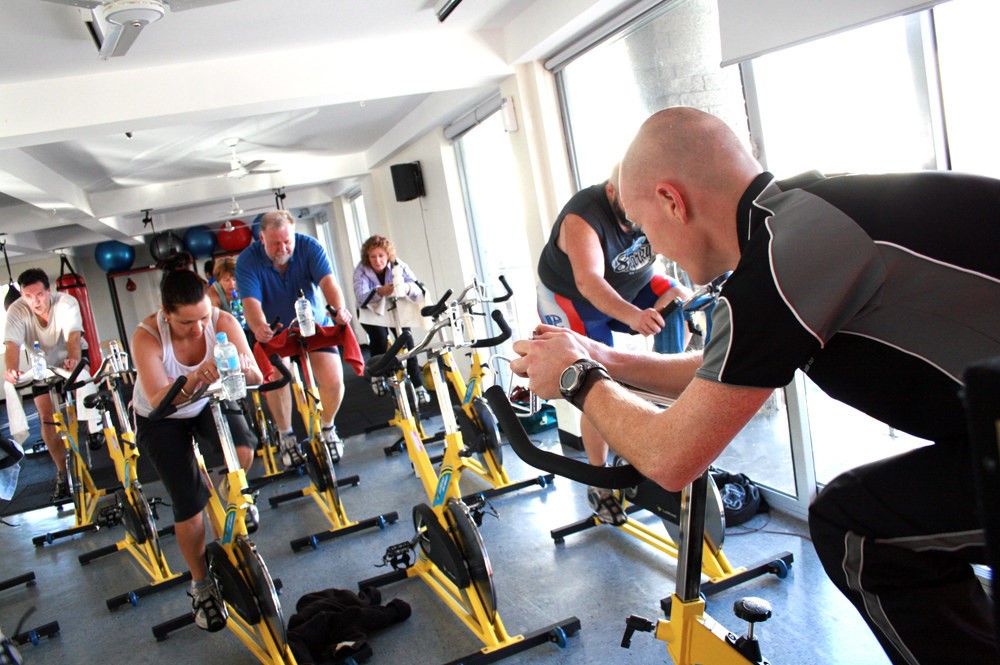REPROGRAMMING THE BRAIN THROUGH EXERCISE

Movement is magical and so is exercise. Not only does it keeps you physically fit but it also enables you to improve mentally. The brain, similar to the rest of the organs and muscles in the body, requires exercise. Exercise acts as a medicine for the mind and food for the brain and helps it remain at optimal levels.
Throwing on your sneakers and getting in some gym time can do wonders for your brain health. Working out can stimulate brain growth and act as a brain fitness program which fuels connections inside the brain.
There are many mental benefits of exercise as it affects the brain in multiple areas. From memory and concentration to protection and creativity, it improves many functions in the brain. As exercise increases the heart rate, it leads to more oxygen pumped to the brain. This oxygen aids in growth and setting up a healthy environment for the creation of brain cells.
For a healthy brain, you need to have a fit body as well. Brain and body go hand in hand. With these significant benefits of exercising; hopefully, you are already motivated to get moving.
Boosting of Memory
The core part of the brain is hippocampus, which is the center of learning and memorizing. This area benefits the most to exercise thus having a profound effect on memory. Cardiovascular fitness programs and aerobic activities have the most impact on memory boosting. Research conducted by the University of Georgia’s Department of Exercise Science, determined exercising for just 20 minutes can improve memory functions.
Even walking can boost our brain functions, thus enhancing the ability to learn, and reason. This boost happens because exercise leads to better oxygenation and nutrients to the brain. It also causes secretion of molecules by muscle and fat cells. This secretion not only has a positive impact on the function and shape of the hippocampus but also accelerates further neuron growth.
Improved Concentration
Research has proven that by interlinking lectures with aerobic exercise for 20-minutes, attention spans are increased in students[1]. Moreover, a large controlled trial conducted in the United States which interconnected repercussions of regular sports classes to academic throughout the year. It showed that fitter students had better multitasking abilities and could easily ignore distractions. The students could do this while concentrating on solving complex problems.
Improvement in Mental conditions
Exercise is well known to boost moods and create an aura of happiness and joy. It improves mental state as it lets you experience runner’s high. It makes you feel motivated and gives you clarity that improves your mental health.
Enhancement of Creativity
Exercise not only improves memory and concentration but also instills creativity. Psychologists have supported it with empirical evidence like in 2014[2]; a paper discussed the merits of walking on creativity and called it creating ideas through legs[3].
Spurring of Brain Cells
When a person gets old, the brain slows down the process of producing new cells. This slow down leads to its tissue shrinking. Through exercise, this process can be slowed down. Research conducted on inactive people between the ages of 60 to 79 presented significant increases in brain volume after six months of strength training. Thus it was concluded that exercise leads to cardiovascular fitness. This cardiovascular fitness results in slowing down of age-related mental changes in old people.
The reason for this has is that cardio helps to increase the blood flow; thus delivering oxygen to the brain which needs 20% of all the total body oxygen. This increase boosts the growth of brain-building hormones and a chemical called brain-derived neurotrophic factor(BDNF). BDNF stimulates the growth of brain cells similar to how plants grow lusher through the use of plant food makes. It spurs proliferation especially in the hippocampus, which aids memory and is susceptible to decline.
Regular exercise produces enough BDNF to keep your brain growing even when you age. A study by Salk Institute has proven that exercising it is possible for an adult human brain to produce neurogenesis thus helping it to rebuild. Exercise will increase the production of a brain protein called Noggin which initiates the process of creation of new cells.
Fighting Stress
Depression is potent because it lowers the brain’s ability to understand information. This lower ability leads to cognitive decline, memory loss, lower concentration, and many more mental problems. Exercise can help this as it boosts mood and increases the production of serotonin and dopamine by the body. These are the chemicals which are crucial to keeping you happy.
Secondly, it also stimulates the feel-good chemicals known as endorphins and creates anti-aging hormones like BDNF, which make you feel optimistic. It also combats aging hormones like stress hormone called cortisol, which slows down thinking, scatters your thoughts and makes you forgetful. By exercising, cortisol levels decline that reduces stress and anxiety and cures depression.
Slows down Cognitive Decline
Cognitive decline has become very common these days and exercise has been proven to fight it. Regular workouts or even brisk walking can mend mental wear and tear and lead to better cognitive processing.
Exercise leads to a higher production of brain-protecting hormones. Higher output has an indirect impact on mood, stress, anxiety, and sleep which are the causes of cognitive impairment. Exercise improves the condition in all these realms, thus leading to enhanced cognitive abilities and reducing cognitive weakening. That is why physical activity is smart for patients with Alzheimer, dementia and mental diseases. It reduces the risk of developing them and also slows down their prognosis.
Many studies conducted all around the world have proved that physical activity encounters the related risk of developing mental diseases in people carrying APOE-ε4 allele, which is the most frequent gene variant, connected to these diseases. They also suggest that movements fight all types of brain deterioration associated with any disease.
Improves the Executive Function of the Brain
Executive function includes not only cognitive skills but also comprise organizing tasks, focusing, solving problems, and sorting plans. It is the ability to conduct daily tasks like remembering a phone number or finding your keys or keeping a work planner.
Many studies have been done to link this executive function with exercise and have been successful in finding a cause and effect relationship. Eighteen well-organized studies on people aged between 55 and 80 who carried out regular training were analyzed. These studies found that they functioned four times better on executing tasks than those who didn’t work out.
The best effects were found in those who did exercise for more than 30 minutes and continued for more than six months. Even four weeks of activity lead to substantial benefits. From walking twice in a week or weight lifting, or dancing all can result in a visible positive neurological impact
Exercise Prevents Disease
According to the National Institute of Health, being physically active can help delay and prevent mental diseases like dementia and Alzheimer’s that are associated with age. Those who remain still and are inactive have double the risk to develop cognitive decline diseases such as Alzheimer’s.
So this gives us a great reason to start becoming physically active today for a better tomorrow. Not only mental illness can be delayed and prevented, but diseases like stroke and diabetes can also be prevented thus causing you less stress and time in the hospital.
Exercising can be used as medicine to help with major diseases. It can also reverse insulin resistance as exercise stabilizes the blood sugar for sixteen hours after an exercise session. It protects from many diseases as blood-sugar control is vital for health. Thus exercising can lead to a longer life span with fewer visits to the hospital, giving you relief from mental, and financial breakdowns.
Stimulates New Connections amongst Cells
Exercise also helps brain plasticity by increasing the growth of connections amongst cells within the wide cortical areas, which are vital for the brain.
A study done recently by UCLA has proven that exercise does indeed improve and enhances growth factors in the brain, which makes it easy for the brain to come up with newer neuronal connections[4].
If seen from a behavioral perspective, it produces the same effects as an antidepressant and leads to a reduction in stress hormones, which generates new networks. Research conducted in Stockholm also backs this and proves that running and movements do have an effect like anti-depressants and are associated with not only cell growth but also enhancement neurology links in the hippocampus.

It doesn’t matter which exercise you chose but the timings and duration matter a lot. Aim to do vigorous activities for an hour, three to four times a week. Another option is to conduct moderately intense sessions for extended periods at least five times a week. It depends on your strength so no need to push yourself beyond your limits.
Start gradually and build your stamina. It is better to do exercise early in the morning to create brain food for the rest of the day. The air is fresh, and you can feel energetic and happy throughout the day if you start early.
[1] https://biomedres.us/pdfs/BJSTR.MS.ID.000456.pdf
[2] https://news.stanford.edu/2014/04/24/walking-vs-sitting-042414/
[3] https://www.apa.org/pubs/journals/releases/xlm-a0036577.pdf
[4] http://newsroom.ucla.edu/releases/memory-loss-associated-with-alzheimers-reversed-for-first-time